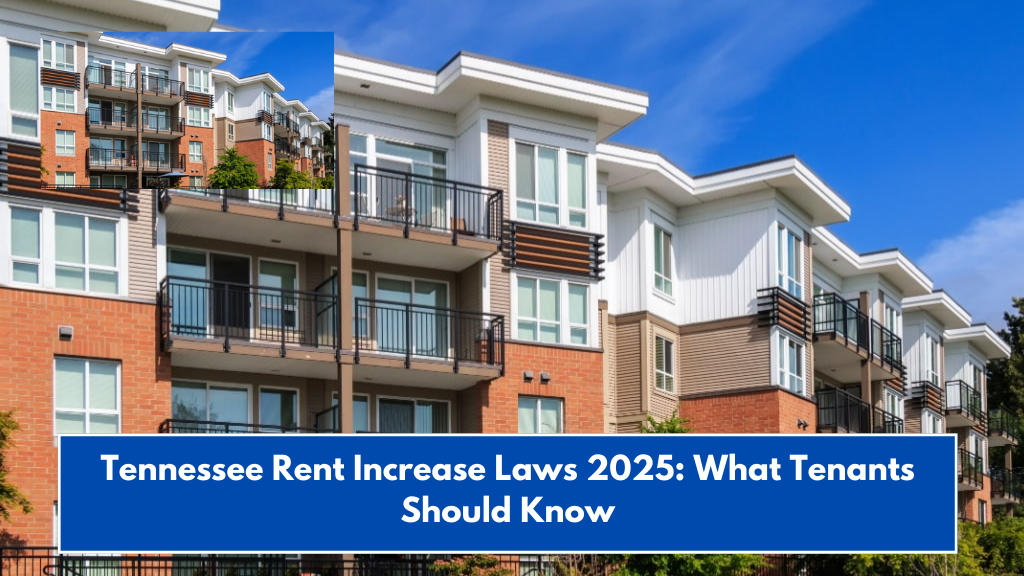Tennessee is known for having some of the least restrictive rental laws in the United States. Unlike many other states, Tennessee bans rent control, which means there are no limits on how much or how often landlords can raise rent. While this benefits property owners, it can make life tougher for renters, especially as housing costs rise quickly in cities like Nashville and Memphis.
Here’s a simple guide to understanding Tennessee’s rent control laws, what they mean for tenants and landlords, and what options renters have.
Tennessee’s Statewide Laws on Rent Control
Tennessee law does not allow rent control at all. Landlords can raise rents by any amount when a lease ends, as long as they give proper notice. There are no rules about how much rent can go up, unlike in places like California or New York where rent increases are limited.
This gives landlords a lot of freedom but leaves tenants vulnerable to sudden, big rent hikes.
No Local Rent Control Allowed
Since 1981, Tennessee has banned cities and counties from creating their own rent control laws. Local governments cannot pass rules to limit rent increases or require landlords to give specific reasons for raising rent. Unless state law changes, no city in Tennessee can put rent control in place.
How Rent Increases Work
In Tennessee, landlords can raise the rent as much as they want at the end of a lease or with 30 days’ notice for month-to-month renters. There are no limits. Landlords often raise rents to match what others are charging nearby. As long as they follow the proper notice rules, they can legally raise the rent by any amount.
Efforts to Change the Law
There have been attempts to change Tennessee’s laws and allow cities to set rent control. In 2019 and 2021, lawmakers introduced bills to give local governments the option, but both efforts failed. Many renters’ advocates still push for change, especially as housing becomes less affordable. However, for now, landlords have full control over setting rents.
The Debate Over Rent Control
There are strong arguments both for and against rent control:
Supporters say rent control:
- Protects long-term tenants from being forced out
- Keeps neighborhoods affordable
- Prevents homelessness
- Helps low-income families stay near jobs and schools
Opponents argue rent control:
- Discourages new housing construction
- Makes landlords less likely to maintain properties
- Hurts small landlords relying on rental income
- Can lead to black market rentals and unfair advantages
Finding the right balance is key. Rent control can help renters but may also hurt the housing supply if builders and landlords pull back.
How Rent Increases Affect Low-Income Tenants
Without any rent control laws, low-income renters in Tennessee are especially at risk. As rents rise, many tenants spend more than 30% of their income on housing, which is considered cost-burdened.
When landlords raise rents suddenly, many low-income families are forced to move, sometimes into worse housing or areas farther from jobs and schools. Advocates say stronger protections are needed to help these renters avoid homelessness and constant displacement.
Basic Tenant Protections in Tennessee
Even though Tennessee doesn’t have rent control, renters do have some basic protections:
- No Retaliation: Landlords can’t raise rent just because a tenant complains about repairs or other legal rights.
- No Discrimination: Landlords can’t raise rent based on a tenant’s race, religion, nationality, disability, or other protected factors.
- Lease Terms Matter: Rent can’t be raised during the middle of a fixed-term lease (like a 1-year lease) without a new agreement.
- Month-to-Month Rules: Landlords must give 30 days’ written notice for any rent increase.
Always make sure rent increase notices are given in writing — verbal notices don’t count.
Alternatives to Rent Control in Tennessee
Even without rent control, there are ways to help renters:
- Rental Assistance Programs: Some areas offer help paying rent for low-income families.
- Affordable Housing Development: Nonprofits and the government work to create housing with lower rents.
- Rent Negotiation: Some landlords may agree to smaller increases to keep good tenants.
- Relocation Assistance: Programs can help families move when rent becomes too high.
- Advocacy Groups: Organizations continue fighting for stronger tenant rights and protections.
Tennessee’s lack of rent control laws gives landlords the freedom to set rent prices, but it also leaves many renters with few protections. As cities grow and housing prices rise, the debate over rent control and tenant rights continues. For now, tenants must rely on basic legal protections, rental assistance, and community support to find affordable homes in Tennessee’s changing housing market.














